Blazer Brass 9mm Review: Reloadable & Reliable
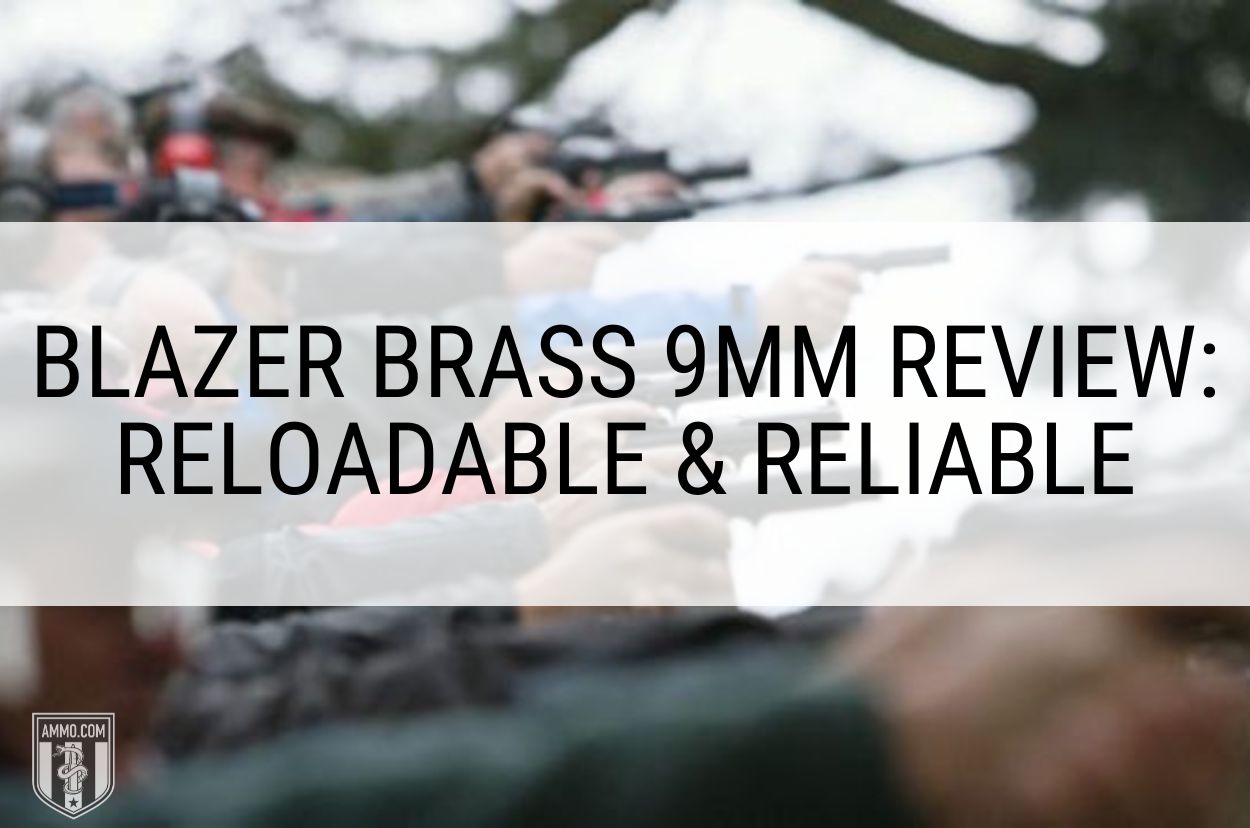
There is a lot of cheap range ammo available online today. Typically, we use full metal jacket rounds like Blazer brass because they’re cheap. However, that doesn’t mean that the rounds you’re buying perform well on the range.
Range ammo is pretty basic; we don’t need it to do much more than travel from barrel to target. When I choose range ammo, though, I need it to be effective and efficient. So, do Blazer Brass 9mm full metal jacket rounds meet our needs?
The answer is that it depends on your firearm, and if you already love 9mm Blazer Brass, then you can place an order for it HERE. Of course, if you want to learn more about this handgun ammo, keep reading my Blazer 9mmm review to get all of my insights on this excellent range ammo.
Blazer Brass 9mm Ammo Overview
Blazer Brass 9mm Luger ammunition is produced by CCI who is best known for their rimfire cartridges. CCI is owned by Vista Outdoors, which is a large conglomerate that also owns companies like Federal Ammunition and Remington. Furthermore, the manufacturing plant in Lewiston, Idaho, also makes our beloved Speer Gold Dot ammunition.
I say all this to say that Blazer Brass comes from a reputable company with stringent quality standards and has been supplying shooters with great cartridges for decades.
Blazer Brass 9mm ammo comes in several variations. First, Blazer also produces aluminum cases. While those aren’t the topic of conversation today, they perform equally well but are a little cheaper.
Blazer Brass, on the other hand, comes in 115gr, 124gr, and 147gr FMJs. The weight of the projectile determines factors like felt recoil and muzzle velocity. Fortunately, Blazer makes those varieties so you can choose which grain weight is best for you, and I’ll discuss that bit more below.
This ammunition is simple because the projectile has a lead core with a copper-alloy jacket. It isn’t designed for terminal performance (like hunting and self-defense cartridges). It isn’t designed for increased muzzle velocity and wind resistance (like competition ammo). Basically, Vista Outdoors supports this line solely for target practice and plinking. However, Blazer Brass is also one of the cheaper options for range ammo.
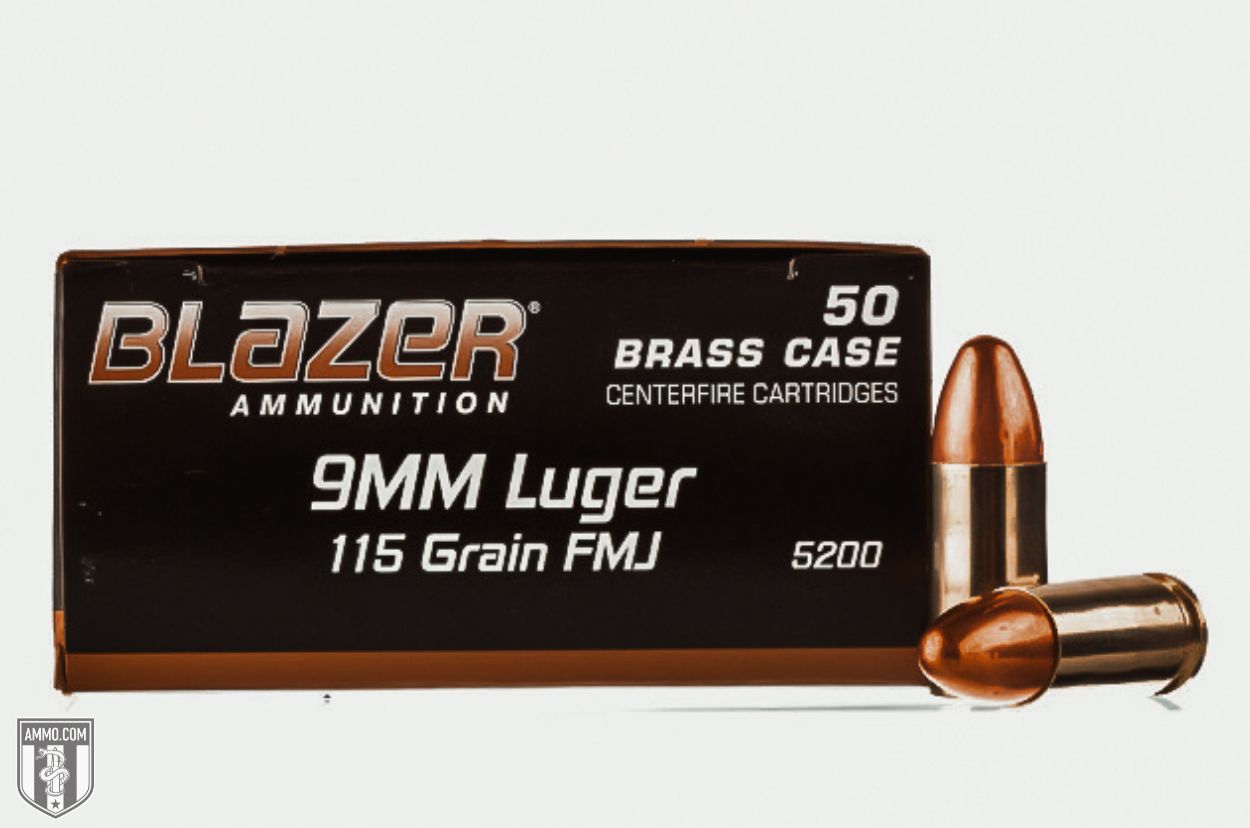
While we typically think of Federal and Winchester as American-made ammo, Blazer is just as patriotic as the rest. Although it isn’t quite as popular as some other brands, it performs well and has a low failure rate. Actually, based on my experience, I’ve never had a problem with any Blazer products that I remember.
Finally, Blazer Brass is just cheap range ammo. Its only real purpose is target shooting. However, and probably more importantly, Blazer Brass uses Boxer primers, so it’s really easy to reload. This also adds value to the ammunition because it’s reusable. This is the ammo you stockpile and use over and over again. Ultimately, 5,000 Blazer rounds are pretty handy, and they’re a long-term investment.
To browse or purchase Blazer Brass 9mm ammo, visit our Blazer Brass 9mm Ammo page.
Our CCI Blazer Brass 9mm Review
I’ve always used CCI’s .22LR ammo for plinking and target practice. When I got my first Glock 9mm a few years ago, I decided to try out Blazer Brass. It’s reloadable, and I already trusted the company.
Fortunately, I wasn’t disappointed. In the years since, and with ammo shortages, I’ve shot all sorts of 9mm FMJs. From Winchester White Box, to Federal, and Magtech, none of it has been disappointing and I’d easily choose one over the other based on price alone.
Blazer Brass tends to be cheaper than other brands, but it’s also equally reliable. It’s pretty good cheap ammo that does exactly what I need it to do (punch holes in paper).
Now, I wouldn’t choose it for personal defense, and if I wanted higher levels of accuracy I'd choose something like Speer Lawman or Remington Range Ammo for sighting in my pistol caliber carbine. On the other hand, this ammo performs perfectly fine when I’m shooting cans on the back porch or taking the kids to the range.
As I mentioned earlier, Blazer offers three grain weights in 9mm FMJs. Fortunately, choosing the right grain weight is a relatively simple process. For example, the 115-grain FMJ feels a little bit snappier than the heavier bullets, but it also has a higher muzzle velocity and energy. If you want something smoother, go with 124gr 9mm Blazer Brass. 147gr 9mm Blazer Brass is slow and heavy, but it’s also more challenging to find than the other two options.
One thing we need to discuss is the type of bullet CCI uses for 9mm Blazer Brass. These cartridges are loaded with plated bullets, which means a thin layer of copper is electroplated onto the lead core of the bullet. The plus side of these bullets is that they are cheap, completely encase the bullet (no exposed lead), and work perfectly fine for handguns using polygonal rifling (like Glocks or H&K's).
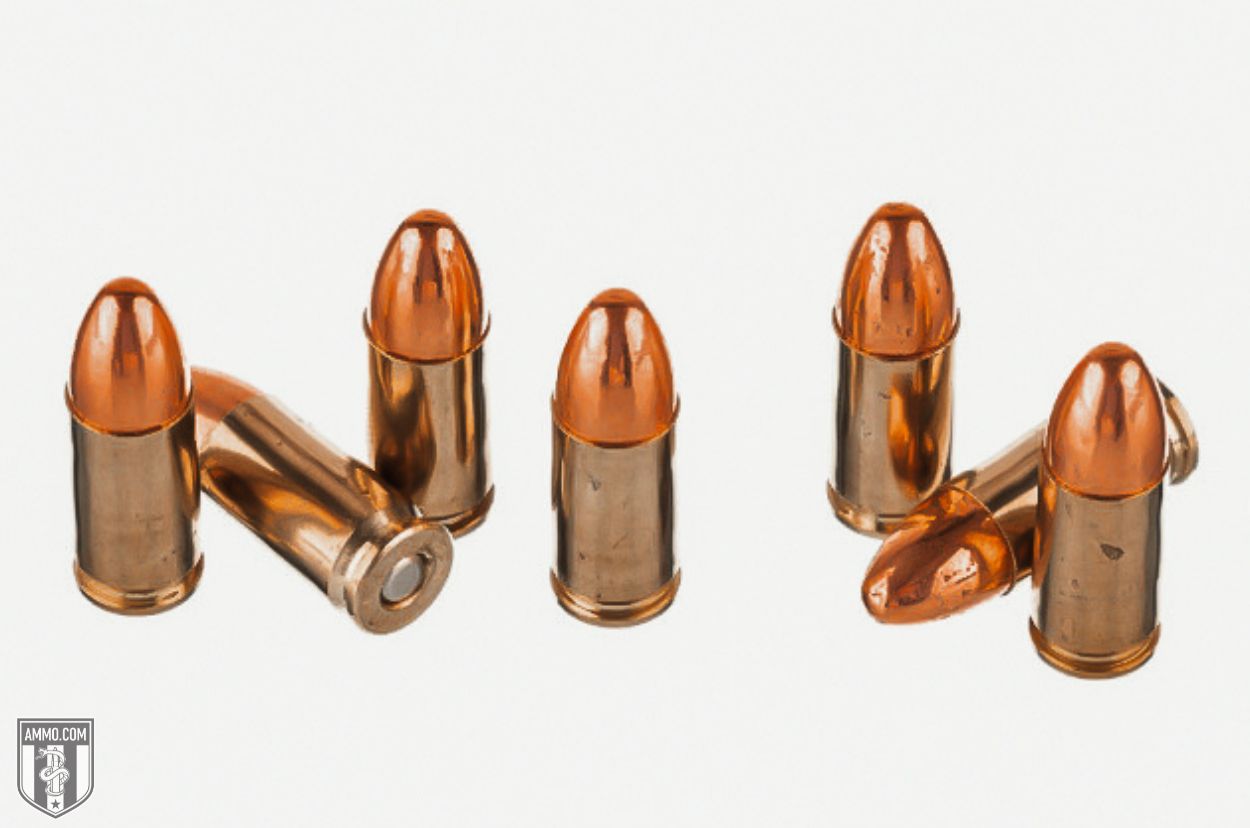
However, you should NOT shoot these bullets through a ported barrel or a recoil compensator. If you do, the jacket can be sheared off causing potential damage to your firearm or causing jacket separation as the bullet travels downrange.
It states clearly on the packaging that these cartridges should not be fired through guns using a ported barrel or recoil compensator, but it bears repeating here so you are better informed. If you do have a firearm with a ported barrel or comp, you will want to shoot a traditional FMJ bullet like those used in 124 gr Magtech or Federal American Eagle.
In summary, I definitely recommend Blazer Brass to a lot of shooters. It’s reliable, accurate, and pretty easy to find. It's great for punching holes in paper, making tin cans dance, and is great ammo that you can stockpile now and reload later.
What is it Best for?
Like most range ammo, Blazer Brass will serve you well at the range. It’s great for target practice, plinking, and getting to know how your firearm feels when you shoot it. This ammo is also excellent for teaching new shooters as it's inexpensive, readily available, and fun to shoot.
Furthermore, as this ammo uses brass cases and is Boxer primed, it's perfect for reloading if you are into that sort of thing.
Disadvantages
There’s been a lot of talk about the quality of ammo coming out of Lewiston since Vista Outdoors bought the ammo companies manufacturing there. While I haven’t personally had issues with Blazer Brass, some have.
If you have a ported barrel or compensator, it’s best to stick with traditional full metal jacket rounds.
Furthermore, this ammo isn't good for self-defense. For your EDC mags I'd recommend a jacketed hollow point like Hornady Critical Duty 124gr +P or Federal Personal Defense HST 124gr JHP +P.
Pros and Cons
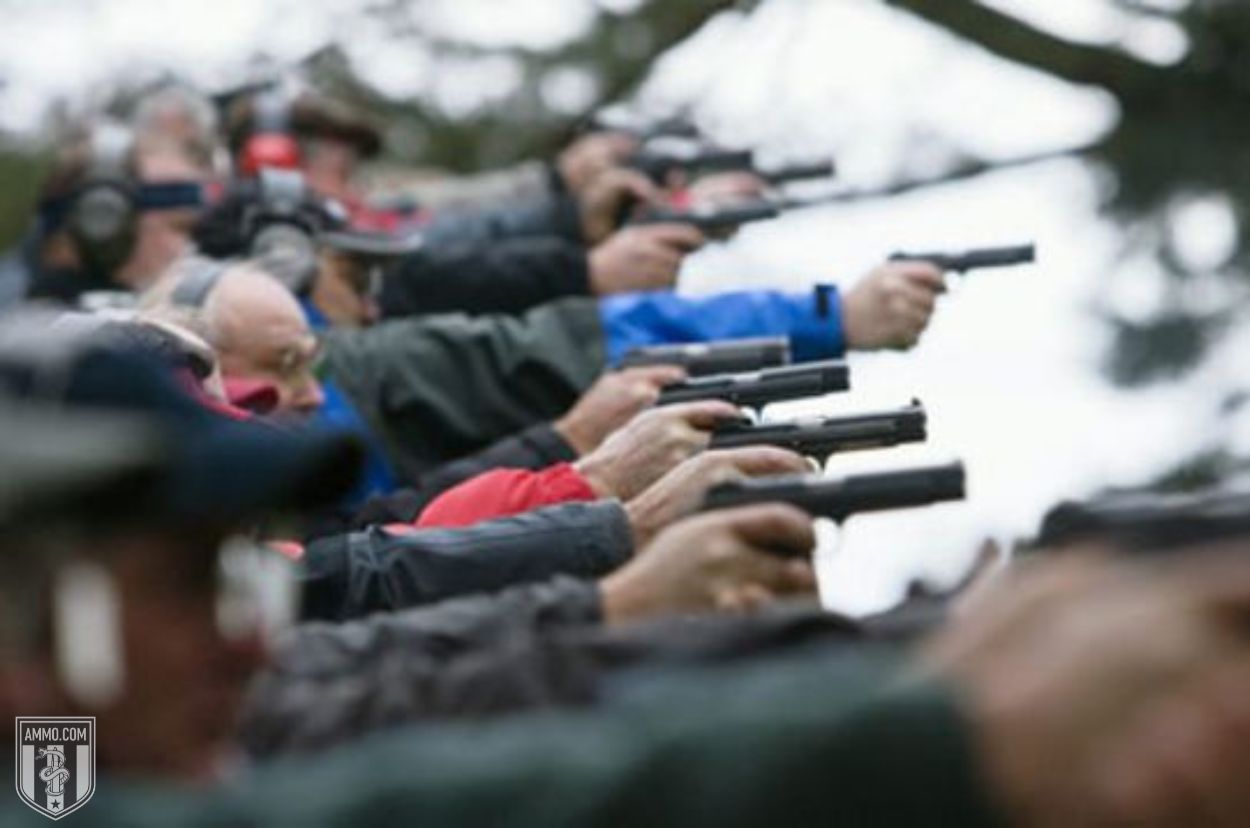
Pros
- Accessibility
- Reputable
- High-quality
- Reloadable brass cases
- Inexpensive
Cons
- Some bad reviews
Specifications
Below you'll find a spec chart for Blazer Brass 9mm Luger ammo for your reference.
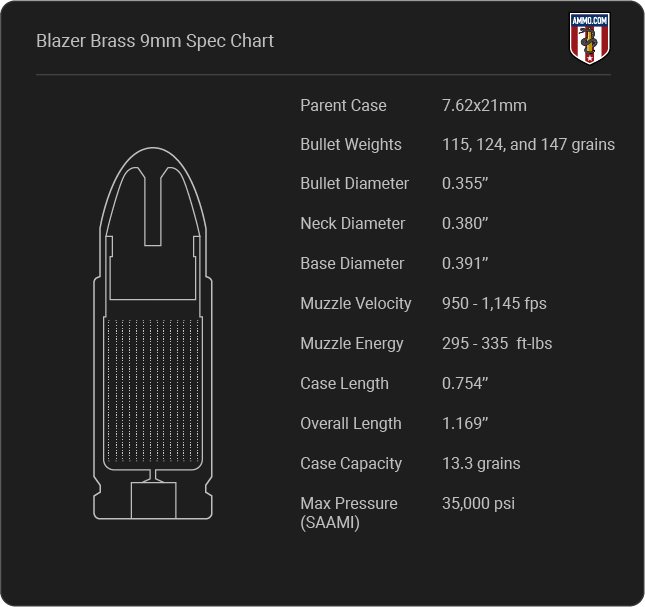
Variations
As I stated above, Blazer has three variations of 9mm ammo. I’ll break those down in the following sections.
Blazer Brass 9mm 115 gr
The lightest Blazer Brass 9mm load is a 115-grain full metal jacket projectile with a muzzle velocity of 1,145 fps and 323 ft-lbs of muzzle energy. This handgun round has slightly higher perceived recoil than the other variations as it can feel a little snappy (but not that much). It may not be best choice for a long shooting session or for novice shooters.
However, if you want to see how your firearm feels with something a bit snappier, the 9mm Luger 115gr Blazer Brass is the one to practice with.
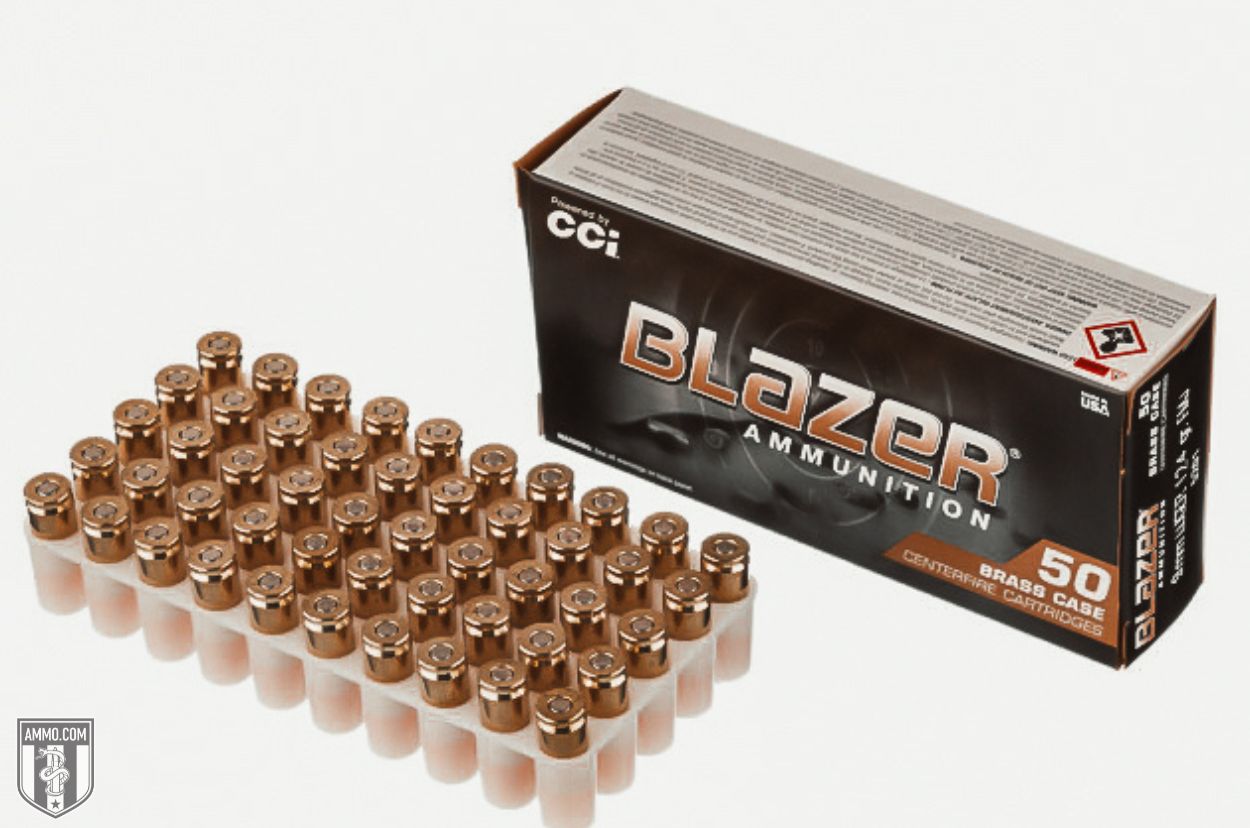
Blazer Brass 9mm 124 gr
The more common variation I’ve seen on the range is the Blazer Brass 9mm 124gr FMJ. It’s a bit slower than the 115gr, but the perceived recoil isn’t as snappy as the lighter version. Furthermore, it has a slower muzzle velocity of 1,090 fps and only 327 ft-lbs of muzzle energy.
The 124gr variation is a bit more versatile; it won’t wear out your arm and some shooters report feeling more accurate than with the 115 grain load.
Blazer Brass 9mm 147 gr
One of the less common Blazer Brass 9mm options is the 147gr FMJ. This subsonic round has a muzzle velocity of only 950 fps and 295 ft-lbs of muzzle energy. It’s heavier and slower than the other two variations.
If you want a quieter round or you’re testing your suppressor at the range, this is the Blazer ammunition to use. Unfortunately, this cartridge is challenging to find in stock. If you can’t find it, Fiocchi 147gr Range Dynamics FMJ is an excellent alternative.
Ballistics of Blazer Brass 9mm Bullets
Below we've compiled the ballistics data for all three Blazer Brass loads covered in this ammo review. This data is from the manufacturer and the ballistic performance in your firearm might not be identical.
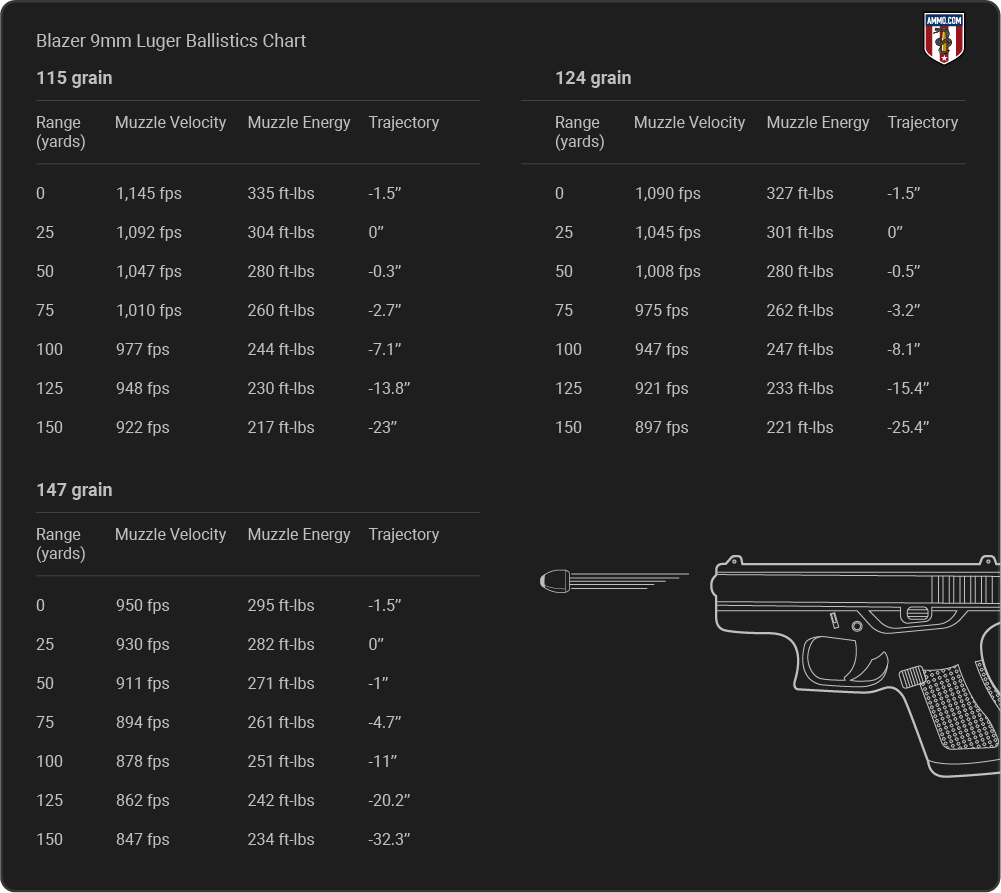
Parting Shots
Blazer Brass 9mm Luger ammo is a great choice if you’re looking for reliable handgun ammunition at a great price. Although they are not ideal for self-defense or use with ported and/or compensated handguns, Blazer Brass 9mm ammunition is a great training round that rarely jams and is perfect for target practice.
"If you're looking to stock up on some quality handgun ammo but don't want to break the bank, then make sure you check out our bulk 9mm ammo options, including Blazer Brass 9mm Luger, available here at Ammo.com. Stocking up in bulk is an excellent way to save on per-round costs and we'll see you out on the range!"
FAQs
Is Blazer Brass 9mm worth buying?
Sure! Blazer brass is good ammo for a great price for target practice. It's very reliable and malfunctions like jams or duds are rare.
What is the range of Blazer Brass 9mm?
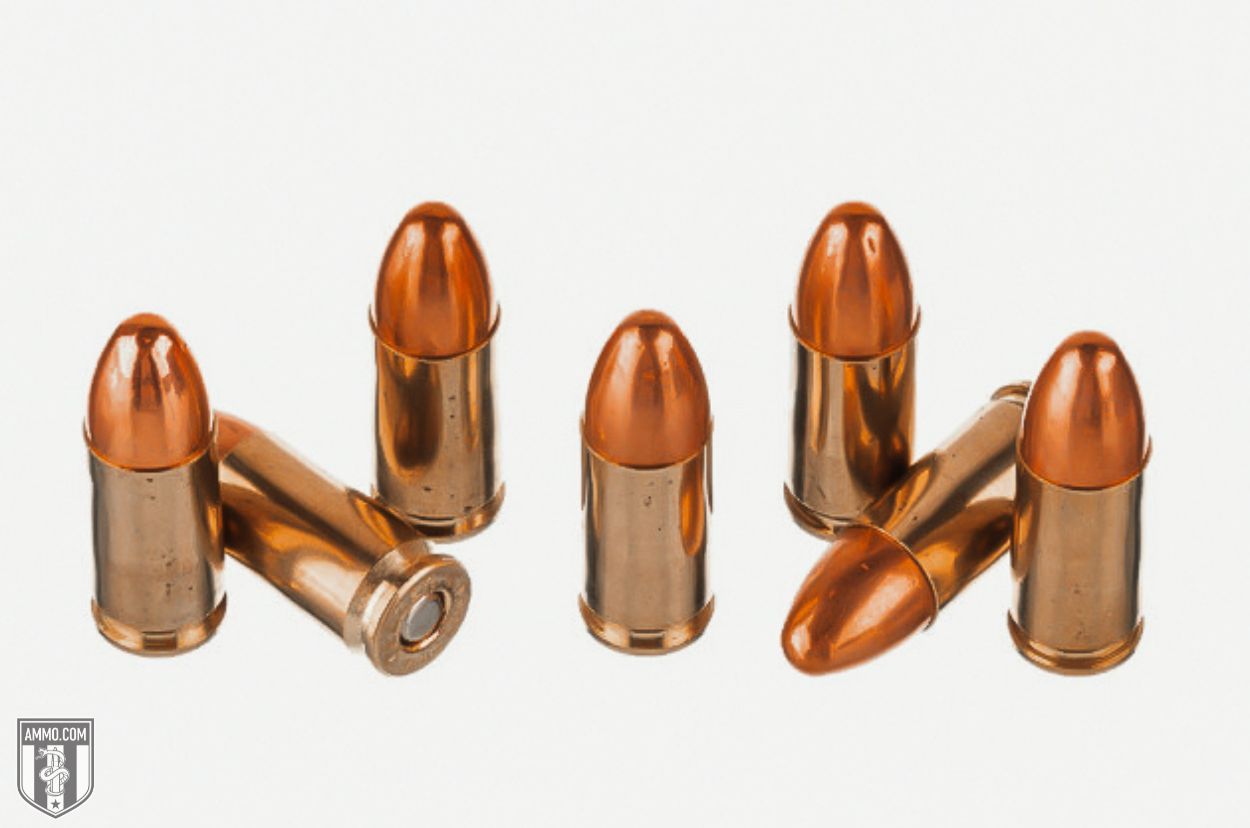
The average range of Blazer Brass 9mm ammo is around 50 yards. Beyond that, you’re losing velocity, and the round-nose projectile is drifting.
What guns can I use Blazer Brass in?
Naturally, any 9mm Luger or pistol carbine will shoot Blazer Brass (even Glocks with polygonal rifling).
Does Blazer make FMJs for .45 ACP?
Yes. If you want to take the entire family to the range for some practice, you can pick up Blazer Brass .45 ACP ammo HERE.
Can I use Blazer Brass FMJs at indoor ranges?
Most ranges do allow full metal jacket rounds. However, some ranges require TMJ (total metal jacket) or plated projectiles due to lead exposure risk.
Ammunition Reviews
- Federal Punch Ammo Review
- Magtech 5.56 Ammo Review
- Hornady 6mm ARC Ammo Review
- Hornady LeveRevolution 30-30 Ammo Review
- Hornady Superformance 6.5 Creedmoor Ammo Review
- Hornady Critical Duty 9mm Ammo Review
- Federal 22LR AutoMatch Ammo Review
- Golden Tiger 7.62x39 Ammo Review
- Federal Non-Typical Ammo Review
- CCI Blazer Aluminum 9mm Ammo Review
- Hornady SST Ammo Review
- Aguila Minishells Review
- Federal American Eagle Ammo Review
- Hornady American Whitetail Ammo Review
- Rio Shotgun Shells Review
- Hornady Frontier 5.56 Ammo Review
- Aguila .22LR Ammo Review
- Federal Training Ammo Review
- Hornady Critical Defense 9mm Review
- Federal Hydra-Shok 380 Review
- Wolf Military Classic 7.62x39 Review
- Federal Syntech Review
- Hornady Critical Defense Review
- Hornady SST Muzzleloader Bullets Review
- Federal Hydra Shok 12 Gauge Slug Review
- Hornady American Whitetail 223 Review
- Hornady Black Ammo Review
- Federal Power Shok Ammo Review
- 338 Lapua Ammo Review
- Hornady American Gunner 300 Blackout Ammo Review
- Federal MeatEater Ammo Review
- Blazer Brass 380 Ammo Review
- Blazer 9mm Luger Review
- Hornady LeveRevolution 44 Mag Review
- Federal Independence Ammo Review
- PMC X-TAC 5.56 Ammo Review
- Hornady Superformance 30-06 165gr SST Review
- Federal Champion 9mm Ammo Review
- Blazer Brass 9mm Ammo Review
- Magtech 9mm 124gr Ammo Review
- Magtech 308 Win 168gr HPBT Ammo Review
- Sellier and Bellot 9mm 124gr Ammo Review
- Rifle Line Ammo Review
- Wolf Performance 7.62x39 Ammo Review
- Wolf 6.5 Grendel Ammo Review
- Sellier and Bellot 300 Blackout Subsonic Ammo Review
- Magtech 45 ACP Ammo Review
- Brown Bear 223 Ammo Review
- Hornady Full Boar 223 Ammo Review
- Federal Hydra Shok 9mm Review
- 270 Hornady American Whitetail Review
- Hornady American Whitetail 308 165-Grain Review
- Blazer 9mm 115-Grain Review
- Hornady Black 6.5 Grendel Ammo Review
- Hornady 300 Blackout 190 Gr Sub-X Review
